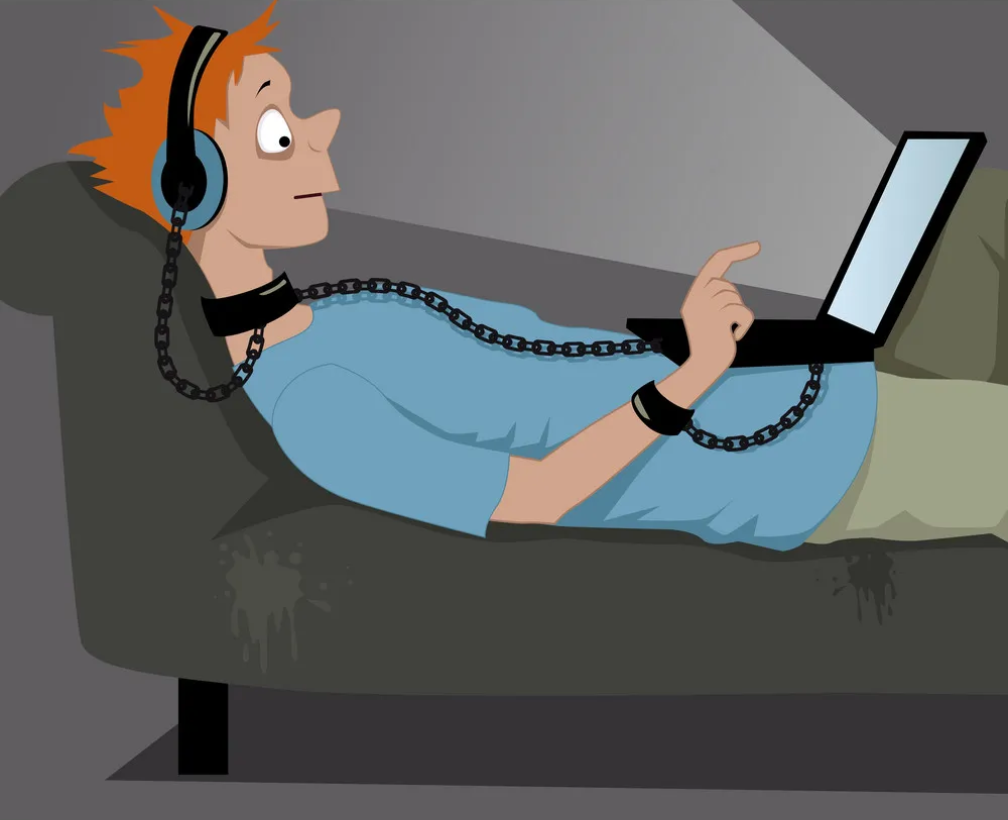
Not really, until around ten or fifteen years ago, when we told our kids, “You have been outside since dawn. Come home, enough!” We’d caution you. You have been at the start of that game for hours, go outside and get some fresh air! Today, we are in the opposite situation, and we say this.
Parents are likely well aware of the fact that kids often avoid the internet for hours or even days at a time, getting up only to use the restroom. Addicts to video games either eat very little or prefer to eat while playing. Given that they put minimal effort into physical activity and speak very little, it is likely that they may soon encounter a variety of health issues.
According to the estimates of the American Medical Association; 90% of teenagers play digital games and 15% of gamers are addicted to games.

What is Game Addiction?
We want to remind parents of kids who play video games:
Do you know what should be observed and given attention at this point:

Reasons for game addiction

Other causes Children and teenagers become addicted to video games for a variety of reasons, including:

Symptoms of gaming Addiction
*If he puts games at the center of his life,
*If he places his life’s focus on games,
*If academic and course success decreases noticeably,
*when unable to play for any reason, displays signals of withdrawal, becomes angry, or withdraws.
*The more he plays, the more effectively he speaks or expresses himself through his actions,
*claims to want to spend less time playing video games, but is unable to accomplish it.
*If he chooses to play video games rather than engage in the activities he once loved,
*lessens communication and causes issues in the classroom or in real life
*Regardless of how much he plays, if he consistently claims to play too little,
*If he uses video games as a means of escape whenever things become tough,
*He turns to games rather than seeing his old buddies if he doesn’t care about his social surroundings.
*If when playing, you exhibit greater joy, vigor, and enthusiasm than usual,
*Behavior and mood: If it brings up issues like despair and anxiety, red flags may be raising.
A specialist doctor’s care may be advised if the aforementioned symptoms are obvious and frequently occur.

Damages caused by addiction
*Negative impacts on the development of personalities
*Tendency to isolate oneself as a result of social isolation,
*Alienation from friends, family, and school in real life,
*Insensitivity,
*Body aches brought on by excessive inactivity,
*Headaches,
*Stomach and intestinal issues
*Dramatic weight gain or loss
*Chronic tiredness,
*Pain, numbness, and/or loss of sensation in the hands and wrists are symptoms of carpal tunnel syndrome.
*Eye conditions brought on by extended screen viewing,
*Significant decline in grades and course performance
*Hygiene issues that develop as a result of not giving cleaning enough attention

How can game addiction be prevented? What type of treatment is needed?
Do not use games as rewards or punishments for your kids. Don’t, for instance, imply that he can play the game if he completes the assignment you’ve given him. Do not adopt the incorrect stance of preventing him from playing due to his improper behavior. It would be better to steer the child toward any other activity that would be of interest to him. You and your companion can go to the theater or the movies, engage in creative pursuits, or play sports.
Spending time with your children is one of the simplest methods to stop them from using screens excessively. With the activities you will perform together, you can stop your child from becoming a screen addict.
You may encourage children to have fun while also assisting in the development of their mental skills by carefully selecting the entertaining game options and pointing them to helpful activities.
Other suggestions for ways to prevent game addiction are as follows:
Also read our other Articles

